Born and raised in San Juan, Puerto Rico, Alex "Apolo" Ayala now makes his home in New York City, where he has carved out a distinctive musical identity by fusing his Afro-Puerto Rican heritage with the jazz language he loves deeply. This fusion hasn't been a simple grafting of cultural elements but rather a decade-long process of artistic development and self-discovery.
"I wasn't really sure what I wanted to do with my music, my craft," Ayala reflects. "In New York City, you have so many influences. I started playing with musicians from all over the world and learned from a lot of cultures."
This ocean of influences initially created an artistic crisis of sorts. "Where do I fit in this ocean of music?" he asked himself. The answer emerged organically: "Little by little, I realized that I need to be true to myself. You were born and raised in Puerto Rico. You're super Puerto Rican. But you also love jazz. You also love your culture. So why don't you just mix both?"
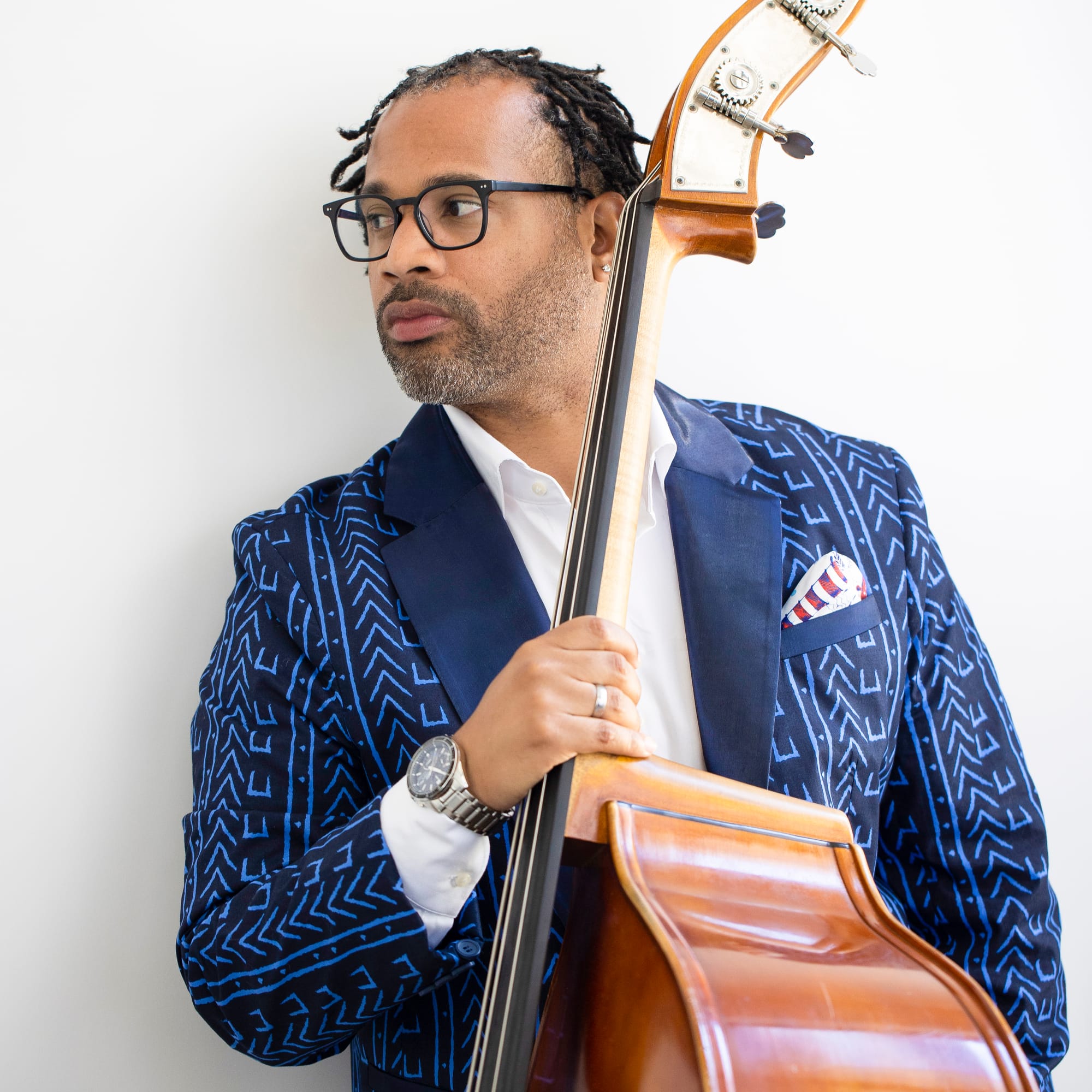
Ayala's start in music began with what he calls "by accident" in his youth. Growing up in Río Piedras, a community in San Juan often compared to public housing projects in the United States, his mother sought better educational opportunities for her son. Determined to provide alternatives to their challenging environment, she enrolled him in a specialized school that offered conventional academics and music education.
"I would take history, math, science, whatever in the morning, and then in the afternoon or the evening, I would take music," Ayala explains. His mother's efforts were not specifically directed toward music—she had applied to multiple specialized schools, and the music-focused institution happened to be the first to accept him despite failing the audition.
"I didn't pass the audition test to the music school. I failed that test miserably," Ayala admits. However, the school director, aware of his family circumstances through a mutual friend, made an exception. "She was like, 'You know what, he didn't pass the test, but, come on, we'll take you anyway.'"
After high school, Ayala entered the conservatory in Puerto Rico, initially studying classical bass. "Most of my background is classical training," he notes. While his formal studies focused on classical music, he simultaneously played popular Latin music. "On the side from school, I was doing popular music. I was doing Latin jazz, salsa music, and Latin music in general."
This dual musical life continued when he enrolled in the conservatory's newly formed jazz program, which proved pivotal for his development. There, he studied under bassist Eddie Gomez (known for his work with Bill Evans and Chick Corea) and saxophonist David Sanchez, both Puerto Rican musicians who had made significant marks in mainstream jazz. Through these mentors and others like Miguel Zenón, Ayala gained entry into the world of jazz while maintaining his Puerto Rican cultural identity.
After graduating from the conservatory, Ayala moved to New York in 2013, where he immersed himself in its diverse music scene. "I soon started playing with Papo Vásquez and a bevy of jazz and Latin jazz musicians," he recalls. Working with saxophonist Antonio Hart from 2016 onward deepened his understanding of jazz. "That was my introduction to the mainstream American jazz scene."
Despite his jazz education in Puerto Rico, Ayala believes his real understanding of the music came from playing with African American musicians in New York. "When I moved here, I really started to understand the language from the people that created the music."
Ayala absorbed these influences for nearly a decade while searching for his voice. The turning point came when he embraced the idea of fusion not as a compromise but as a strength. "I'm going to take my music, my culture, where I'm from and mix it with this language that I love so much, which is jazz."
This artistic clarity is evident in his evolution between his debut album, Bámbula (2022), and his latest, Afro-Puerto Rican Jazz. Where his first album introduced his concept, the new record demonstrates greater confidence and artistic risk-taking.
"For this album, I was much more fearless, not so conservative," Ayala says. "The first one was just an introduction of where I'm going, but this one is a little bit more—this is what I wanted to do. I was more unapologetic about that message."

Among the most striking compositions on Afro-Puerto Rican Jazz is the three-movement "Agonía" suite, which demonstrates technical sophistication and emotional depth. The suite emerged from what Ayala describes as "a difficult family situation" his family faced five years ago, the specifics of which remain private.
The suite's three movements, "Reckoning," "Hopelessness," and "Uncertainty,” chart the emotional terrain of this family crisis. "Reckoning" captures the chaotic initial phase, with rapid shifts in mood and direction mirroring the unpredictable developments his family experienced. "One day, it was this one thing. The other day was this other thing and that's how slowly... it was just a lot going on at the same time," Ayala explains.
The second movement, "Hopelessness," reflects a darker period when optimism waned. "That feeling of hopelessness hit us hard, and we were like, 'Yeah, we don't know what's going on,'" Ayala recalls. "All we can do is pray and stay put and strong. But at the same time, you can't help but feel this hopelessness."
The final movement, "Uncertainty," introduces a cautious glimmer of potential resolution, though it deliberately avoids providing a definitive conclusion. "This might go well, or it might not," Ayala says of the sentiment behind this movement. "Everything is uncertain. It can go well. It can go 'meh.' Or it can go pretty bad. We don't know."
This approach to composition, using music to process and express life experiences, connects Ayala to a lineage of composers he admires, including Charles Mingus, John Coltrane, and Wayne Shorter. "Music is more than just music. It was about life," he says of these influences. "I can't just sit there and write tunes for the sake of writing tunes. My music is a vehicle."
The suite's impact extends beyond personal expression. When performed live at The Jazz Club last year with his big band, Ayala introduced each movement with context about its emotional underpinnings. This framing helped audiences connect with what might otherwise have seemed abstract or avant-garde. "More than one person came after the set and said, ‘After you said what you said about this suite, that really hit me. I could feel the reckoning and the agony.'"
Another powerful composition on the new album is "Ngudi," which continues Ayala's practice of writing music dedicated to his late mother, who passed away in 2019, just months before the COVID-19 pandemic began. "That event completely changed me," Ayala shares. "I'm still not recovered. I haven't recovered, and I don't think I ever will."
The title "Ngudi" carries special significance, as it means "mother" in Kikongo, a language from the Congo region of Africa. This linguistic choice reflects Ayala's awareness of the historical connections between Afro-Puerto Rican music, particularly Bomba, and the Congo region.
"Because most of this tradition is rooted in the Congo region of Africa, specifically the Ki-Congo, the Ba-Congo people of the Congo in Africa," Ayala explains, "I was looking to connect, to make a connection with the tradition, where this tradition comes from, where the motherland heavily influences us, but also write something for my mother."
This composition follows three tributes to his mother and grandmother on his previous album, suggesting an ongoing musical dialogue with his family roots even after loss.
Beyond personal expression, Ayala sees his music as part of a larger project of cultural connection. "I'm all about bridging the African diaspora. That's my passion," he states. This perspective recognizes the shared African roots that connect musical traditions across the Americas and the Caribbean.
Ayala explains that the Bomba tradition central to his music originated primarily from the Congo area of Africa. During the early period of the Atlantic slave trade, people from this region made up a significant portion of those forcibly transported to Puerto Rico, Cuba, and parts of South America.
This shared heritage creates musical connections that transcend national boundaries. "Even though the rhythms are not the same, the root is common," Ayala notes. "When I play, when I sit down on a drum and play a Sicá rhythm from Bomba, somebody from Venezuela can say, 'Oh yeah, that sounds similar to this other rhythm that we have.'"
These connections extend to Colombia, where similar recognitions occur. Rather than emphasizing the distinctions between these traditions, Ayala focuses on their shared origins. "We are all connected. It's just that there are different versions of the same thing."
This philosophy counters what Ayala sees as an unfortunate tendency toward cultural fragmentation. "We start to tribalize the whole thing and start to fragment the whole thing... 'Yeah, this is the music from Puerto Rico, this is Puerto Rican music'... but at the end of the day, we're all connected."
The release of Afro-Puerto Rican Jazz through Miel Music marks an important development for the independent label founded by acclaimed saxophonist, composer, and MacArthur Fellow Miguel Zenón. This album is the first on the label by an artist besides Zenón himself.
The collaboration came about through a mix of fortunate timing and shared vision. Facing limited options for record deals, Ayala initially called Zenón merely seeking advice. "He gave me advice: 'You're already doing everything yourself. You are already writing the music, and you're booking, you're paying the musicians, you're doing the mix and master. You're doing everything yourself. So what exactly would a record label have to offer to you?'"
After this conversation, Ayala established his own label, PMC Records. However, weeks later, Zenón approached him with a proposal. "He called me and was like, 'Listen, man, after we talked, there is an idea that has been in the back of my head for a while. How about if we do a collaboration launch, so let's put your record on my label, and you can use my distribution.'"
This offer held special significance for Ayala, who had secretly hoped for such an arrangement but had been too intimidated to suggest it. "When I called him, that's really what I wanted to pitch," Ayala admits. "But I was so scared of doing it because he's an idol, a hero for me and for us."
Beyond the practical benefits, this collaboration reinforces a sense of community among Puerto Rican jazz musicians. "There's not a lot of Latinos in jazz, let alone Puerto Rican musicians in jazz. There's only a handful of us," Ayala notes. "And when he did that, I felt 'okay, I see, I can see the message behind it, that sense of community, of us, we come from the same land, and we're here in the mainland.'"
For Zenón, the collaboration represents an evolution of his label's mission. "For a very long time now, I've been thinking about ways to help provide a platform for up-and-coming musicians so that it's simpler for them to share their albums and musical vision," he shares. "I'm excited to share my platform with artists like Alex Ayala. He's an excellent musician with a clear vision and a quest for excellence. I hope this collaboration with Alex will be the first of many."
Ayala situates his work within a rich lineage of musicians who have fused jazz with Latin American traditions. "It's been done before. Historically, Dizzy [Gillespie] did it with Chano Pozo with 'Manteca.' And Mario, the late great Mario Bauzá, did it with 'Tanga,'" he observes. "Jobim did it with Stan Getz, Bossa Nova, and Samba."
What distinguishes his approach is the specific emphasis on Afro-Puerto Rican rhythms rather than the more commonly incorporated Afro-Cuban or Brazilian elements. "Almost everybody has done it with the Afro-Cuban rhythms or Afro-Brazilian or Brazilian rhythms. I am bringing the Afro-Puerto Rican element to that tradition."
Even within Puerto Rican jazz, Ayala acknowledges predecessors like David Sanchez, Papo Vásquez, William Cepeda, and Miguel Zenón, who have incorporated elements of their heritage. Yet he brings his perspective to this tradition, particularly in his approach to rhythm.
On his debut album, Ayala kept traditional rhythms intact, with occasional ventures into odd meters. The new album pushes further, incorporating "more polyrhythmic elements, odd meter elements, rhythmic modulation elements," as he describes it.
Despite these innovations, the foundation remains consistent: "The rhythms are there, but what is happening on top—the melody, the improvisation, the chord changes, the solos—is bebop. It's mainly bebop because bebop is my thing."
Out through Ayala's own PMC Records and Miguel Zenón's Miel Music, Afro-Puerto Rican Jazz features Ayala with his ensemble, The Bámbula Project. The album includes Andrew Gould on alto and soprano saxophones, Fernando García on drums, Victor Pablo García on percussion, and guest artist Nelson Matthew Gonzalez on requinto drum for three tracks.
The ten-track collection opens with "Río Piedras," a tribute to Ayala's hometown in San Juan. Beyond the previously discussed "Agonía" suite and "Ngudi," the album features "3D Plena," a nod to Ray Santos's "3D Mambo,” originally written for the Tito Puente orchestra, reimagined with plena rhythms and bebop influences.
The album's sole cover, "Bomba Carambomba," pays homage to a classic recorded by Puerto Rican legends Rafael Cortijo and Ismael Rivera, whom Ayala describes as "probably one of the most important musicians and singers in, not just Puerto Rican history, but Afro-Caribbean history." Originally recorded in a Guaracha rhythm, Ayala's version marks what he believes is the first recording of this song using Bomba or Plena rhythms.
Two compositions, "Bomba Pa' Ana Luisa" and "Sweetness," are dedicated to Ayala's wife, Anna Louise Andersson. "Sweetness" particularly showcases his classical influences and evolving approach as a soloist.
The album concludes with "Cuembé," a rhythm from the bomba tradition that highlights regional variations across Puerto Rico, bringing the record to a celebratory close.

For Ayala, finding his current artistic vision required musical development and personal acceptance of his cultural identity. This fusion isn't merely aesthetic but deeply connected to his sense of self.
When asked about lineage and tradition, Ayala emphasizes authenticity over conscious positioning within jazz history. "I'm not thinking about lineage at all. I'm just doing my thing," he states. Nevertheless, he acknowledges his place in a continuum: "I'm standing on the shoulders of all those who came before me."
This balance, honoring tradition while pursuing individual expression, defines Ayala's artistic ethos. He describes himself as "obsessed with getting better, being great, mastering the craft, good quality, great content, great music, respecting the craft, respecting the music, respecting all of those who came before you."
Yet within these parameters, Ayala has found the freedom to create music that is distinctly his own, music that speaks to both his Puerto Rican heritage and his love of jazz. As he prepares to release Afro-Puerto Rican Jazz this spring, Ayala continues to expand the possibilities of what this musical fusion can achieve, not merely as cultural exchange but as a reflection of lived experience, family bonds, and shared histories that transcend national boundaries.
In doing so, he contributes to the ongoing vitality of jazz itself, demonstrating how the idiom remains relevant through its capacity to incorporate various cultural influences while maintaining its core elements of improvisation and personal expression.
Visit Alex ‘Apolo' Ayala at alexapoloayala.com and follow him on Instagram, Facebook, and YouTube.
Check out more like this:
 The TonearmLawrence Peryer
The TonearmLawrence Peryer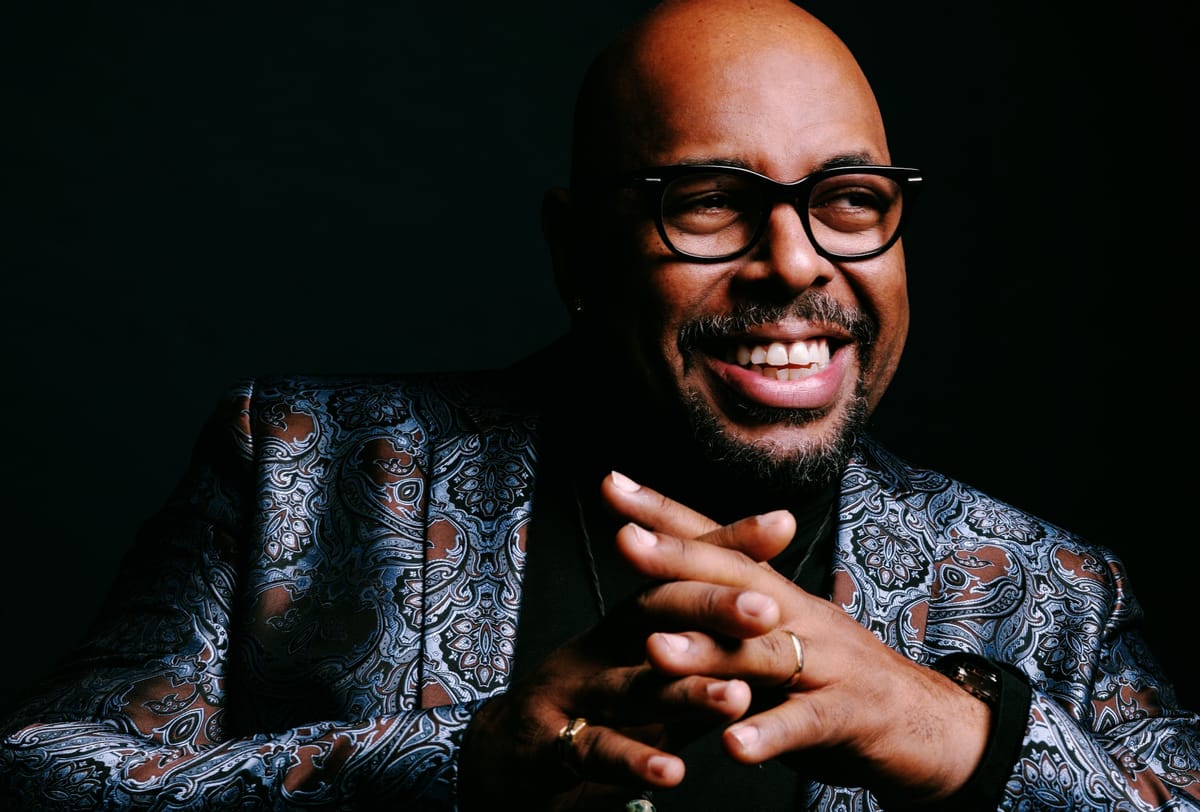
 The TonearmMiguel Angel Bustamante
The TonearmMiguel Angel Bustamante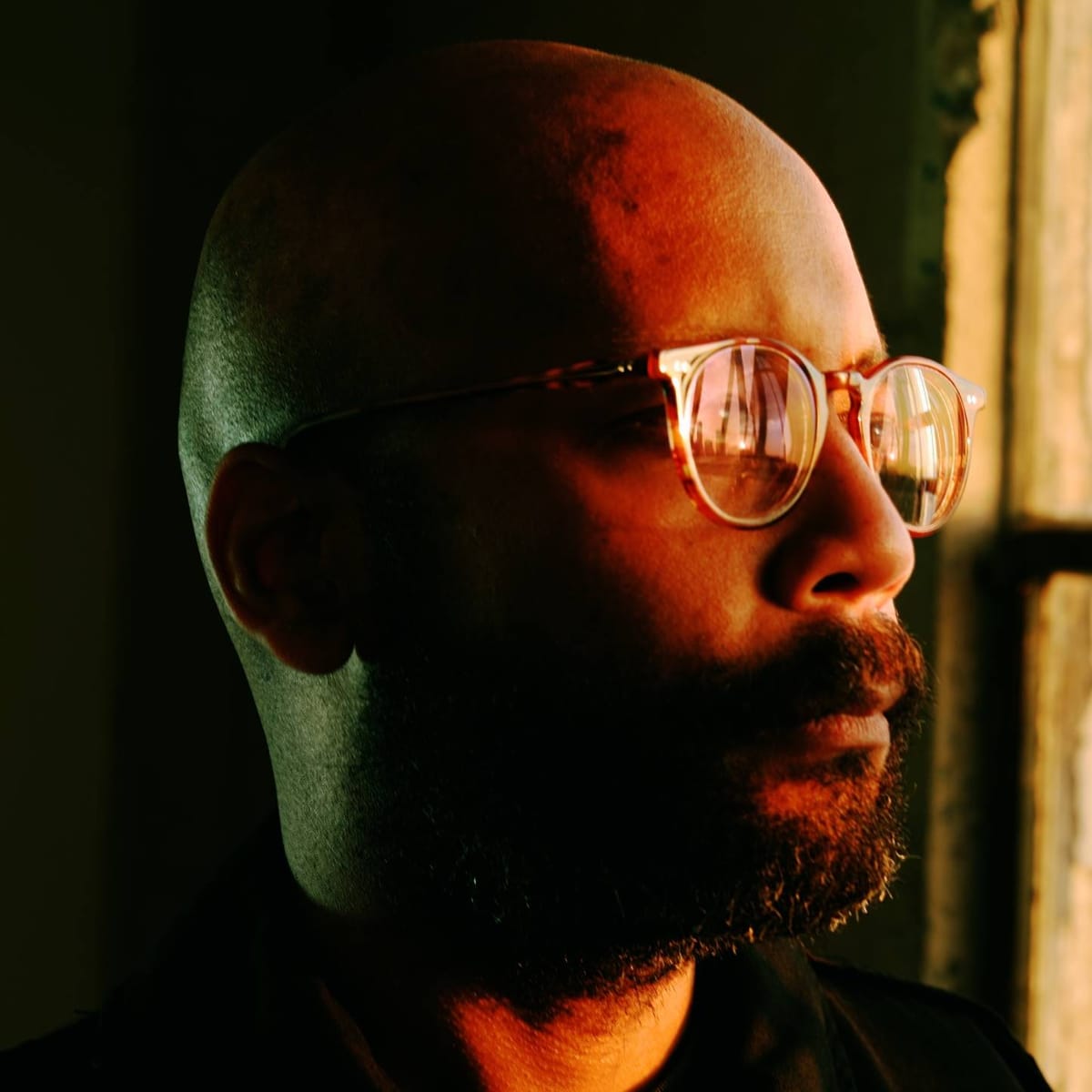


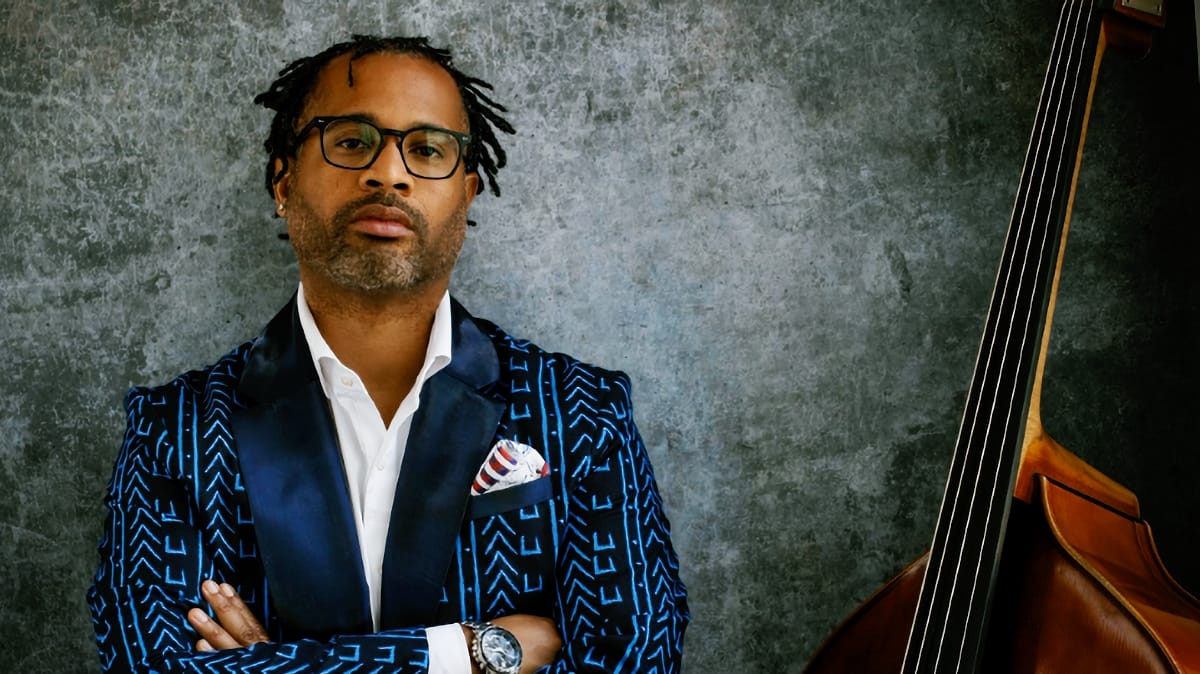

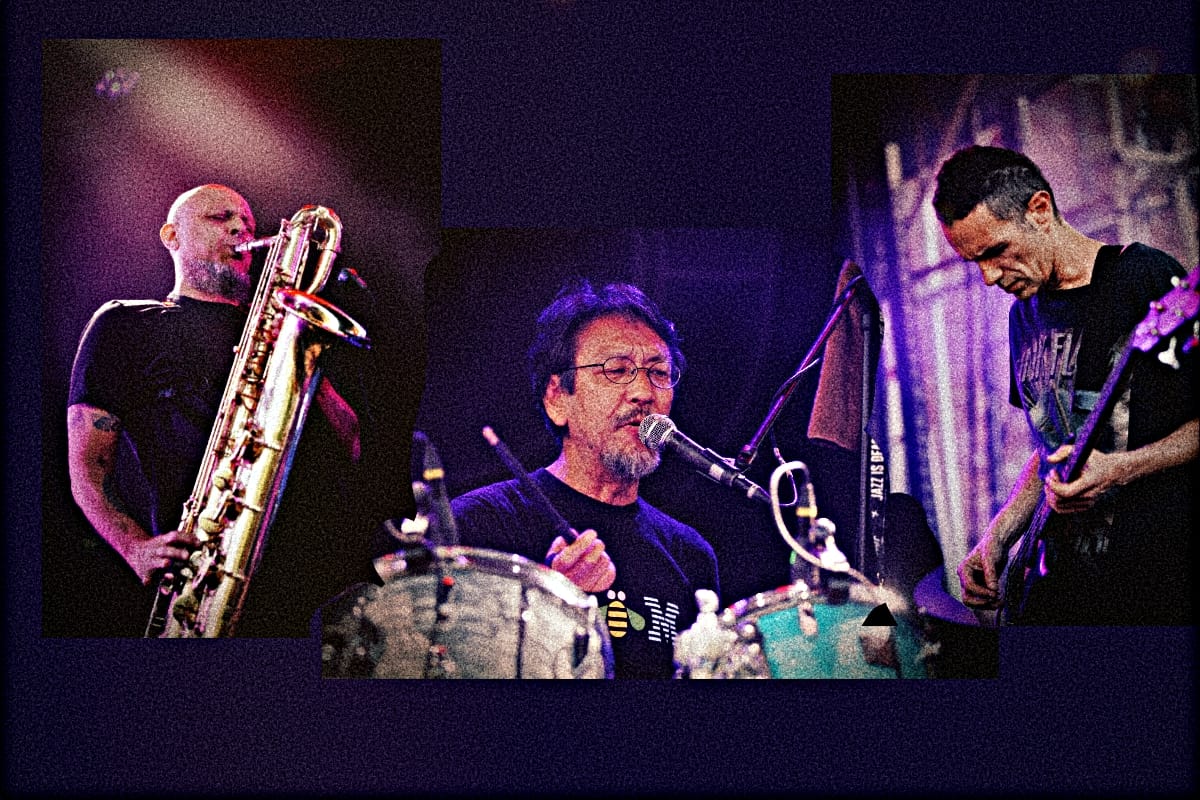
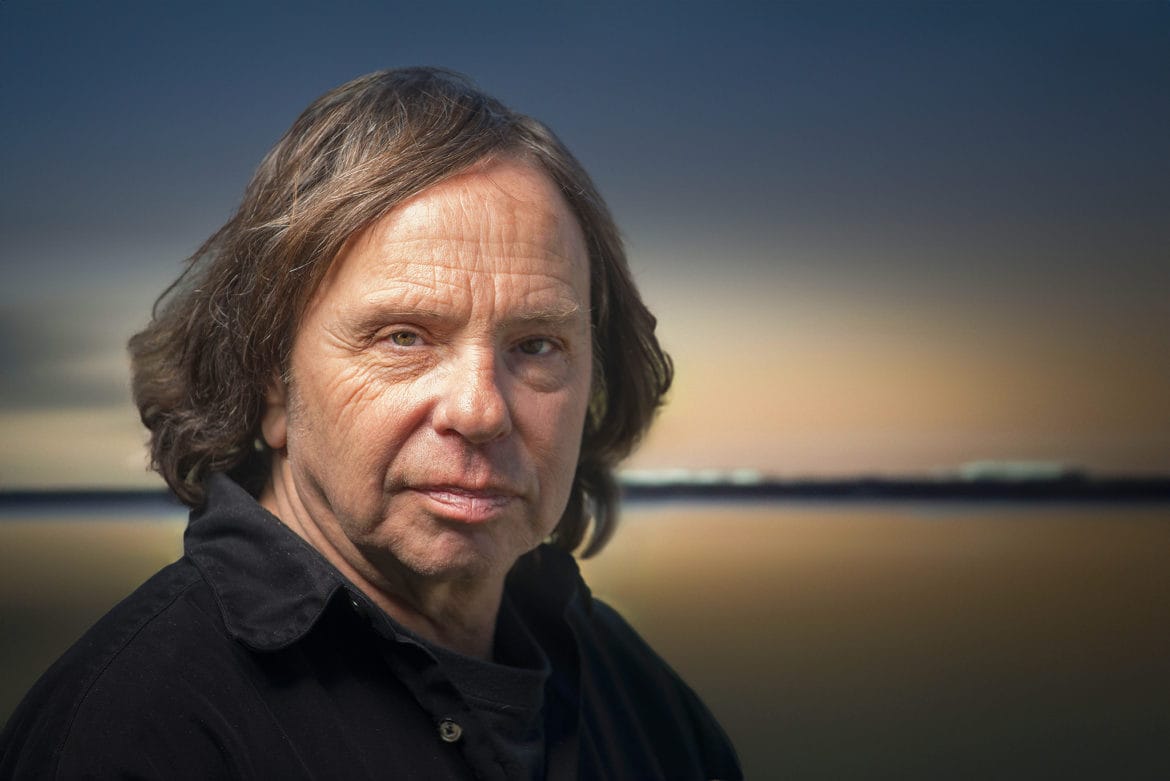

Comments